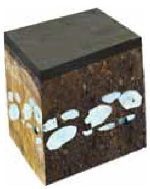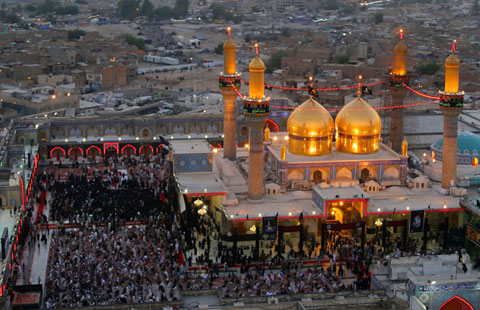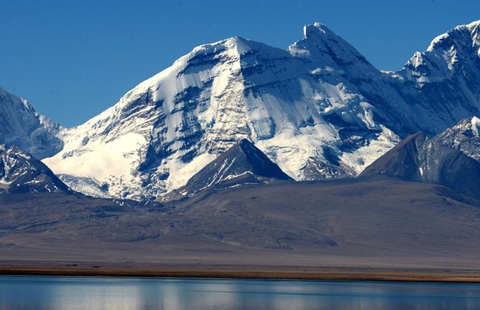Vital lifeline
Updated: 2014-05-28 08:08
By Hu Yongqi and Da Qiong (China Daily)
|
||||||||
|
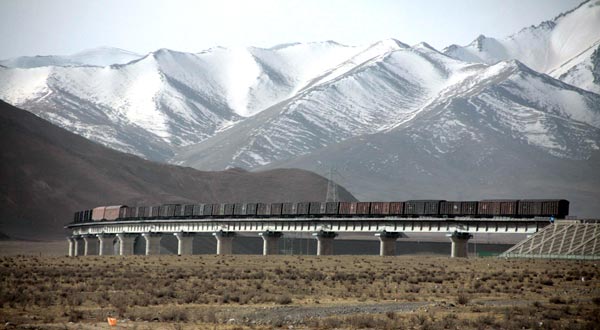 |
|
A train runs on the
Qinghai-Tibet Highway [Photo by Hu Yongqi/China Daily] |
|
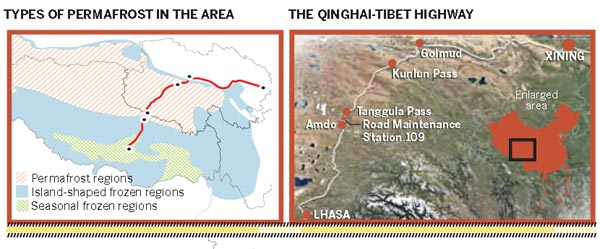 |
|
Miserable nights and enthralling days in Amdo After spending just one night in Amdo county, the crushing headaches and breathlessness caused by the lack of oxygen will be imprinted in my memory until the day I die. |
The dim light emitted by a coal- and cow-dung-fueled oven helped to warm the small apartment where Tsering Degyi and her husband Gunga were cooking potatoes.
They were in for a long wait; at an altitude of more than 5,200 meters, cooking dinner is time-consuming, because water boils at a much lower temperature.
While the potatoes roasted slowly, the couple spoke in low voices, discussing the day's events in a Tibetan dialect.
Suddenly, the quiet of the room was shattered by a cellphone ringing. Tsering Degyi leaped quickly to her feet and strode to the window where the phone hung in an old cigarette packet pasted to the window frame, the optimum position for receiving mobile signals.
|
PERMAFROST
Permafrost is permanently frozen soil, sediment, or rock. Its classification is solely based on temperature, not moisture or ground cover. The ground must remain at or below freezing point for at least two years to be classified as permafrost.
FLOODING
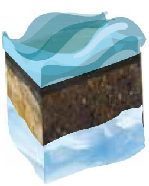 June, July and August represent the rainy season. If the highway is flooded, the authorities may change the route for vehicles and then repair the damaged section of road.
300,000 square km of the land lies on frozen soil. The total acreage has been dwindling since 1962
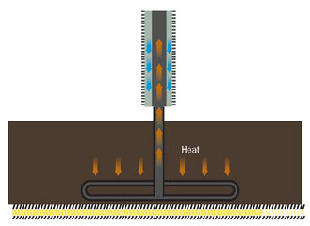 An air duct cooling system is a passive cooling system that utilizes metal conduits embedded in the embankment.
1. Cold air enters.
2. Heat is absorbed from the soil.
3. The air warms, expands, loses density and weight, and then flows up through the chimney.
4. A vacuum pulls more cold air into the intake. Heat is continually sucked from the soil, making it colder and more resistant to melting.
|
She picked up the phone and smiled as she heard her son's voice at the other end. The 38-year-old mother is always impatient as she awaits the daily call from her son, who lives 130 km away in the county seat of Amdo, Nagchu prefecture, in the north of the Tibet autonomous region.
Long periods of separation from their children are a fact of life for couples such as Tsering Degyi and Gunga and their fellow workers at Road Maintenance Station 109 on the Qinghai-Tibet Highway. The dearth of amenities in this mountainous region means almost everyone sends their children away to school.
With only the weakest of phone signals and few visitors, the maintenance station, which was established 30 years ago, has long been considered "isolated", even though more than 12,000 vehicles traverse the highway every day, and the number rises to 21,000 during the prime travel season, according to the Qinghai-Tibet Highway Management Bureau.
Between October and April, blizzards are frequent on the Qinghai-Tibet plateau, and many members of the road maintenance crew are plagued by frostbite as they work through the freezing winter months to keep the highway open. The workers said the stretch that runs from Golmud in Qinghai province to Lhasa, the capital of the Tibet autonomous region, is particularly tough.
Life is hard on the plateau, and the road crews battle loneliness and altitude sickness to ensure that the vital lifeline remains open, especially during the snowbound winters and the flood-prone summers.
This year marks the 60th anniversary of the opening of the road that snakes like a black ribbon across the landscape and has carried millions of metric tons of supplies to and from Tibet over the years.
Vital supplies
About 20 km north of the station, the towering Tanggula Mountains were carpeted with dried grasses, and the herds of yak added splashes of black and white to the almost-uninhabited area.
Occasionally, one sees Tibetan antelopes and wild donkeys, but the silence is broken only by the sounds of engines revving furiously as vehicles negotiate one of the highest roads in China.
Every 30 or 40 kilometers, visitors come across teams of maintenance workers, all dressed, like Gunga, in yellow coveralls. On a morning in late April, we watched Tsering Degyi using a shovel to clear soil from the road as an icy wind bit into her hands and face like an invisible knife. After about 30 minutes, she was forced to stop work and blow on her frozen hands in an attempt to keep them flexible. A bulldozer edged forward, moving soil that the workers used to fortify the roadside verges.
"This isn't the busiest time for me and my colleagues, but it is the most difficult because of the altitude and unpredictable weather," said Nyima Yanggyi, a 27-year-old worker at Station 109.
|
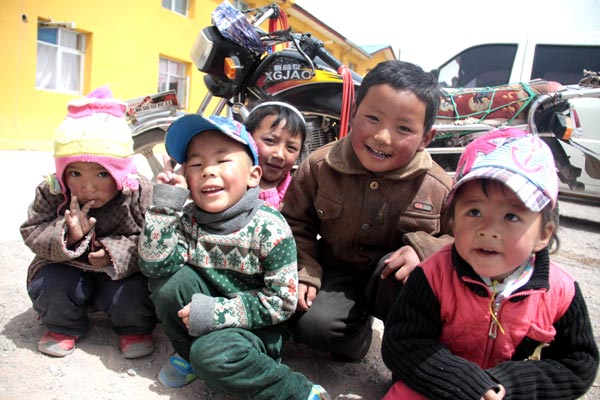 |
|
Children often live with their parents at Road Maintenance Station 109 on the Qinghai-Tibet Highway. Photo by Hu Yongqi / China Daily |
|
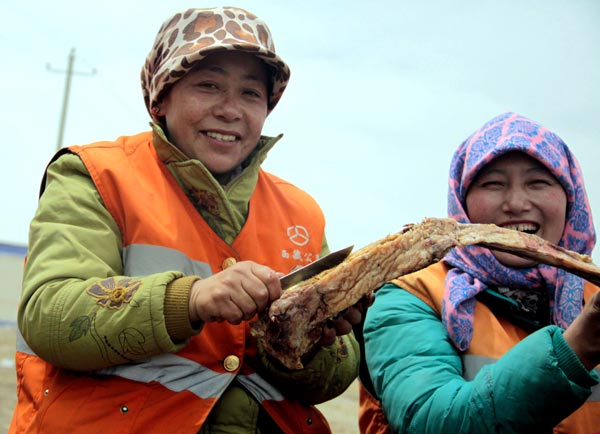 |
Most Viewed
Editor's Picks

|

|

|

|

|

|
Today's Top News
Obama: Afghanistan 'not US responsibility'
Explain spying on cyberspace, US told
Tennessee factory brings needed jobs
Ignorance of law no excuse for immigrant child abuse
Yao Ming mulls Clippers bid
Beijing subways to get 4G coverage
Xinjiang's stability a top priority
More efforts against arms smuggling
US Weekly

|

|
